Asking for Help Teaching Resources
Teach your students how to ask for help and when asking for help is appropriate with a teacher-created collection of social emotional learning resources!
Packed with activities for students to learn about trusted adults, words they can use when they know they need help, plus activities that help students differentiate between tattling on a classmate and telling an adult, this collection will help you arm your students with important skills for their futures.
New to teaching this portion of the SEL curriculum? Read on for a primer from our teacher team!
Teaching Kids How to Ask for Help
Asking for help isn't something that comes naturally to many of us — even adults — and it can be especially daunting when you're an elementary school student who is afraid their outreach will bother or annoy an adult. It can likewise be challenging for kids who don't want to seem unsure or unable to accomplish a task.
An important part of everything from decision making to relationship skills and even self management, asking for help comes down to understanding that it's Ok to ask for help when they meet certain challenges.
So how do you teach kids that asking for help isn't just OK, but it's often the best path?
Here are some tips from our teacher team:
- Identify the different sorts of helpers who your class can turn to. Whether it's a teacher, a family member, a classmate or someone else, it helps students to understand what makes someone a good source of help.
- Provide methods to ask for help. Get students used to asking for help in your own classroom with simple methods to do so, such as hand signals kids can use when they need assistance or providing a system for asking 3 classmates before turning to you for help. Offer visual cues to help reinforce these strategies!
- Provide one-on-one support. Sometimes kids need individual support, and providing a chance to ask for help directly can take away a child's fear that they will be judged unfairly by classmates for seeking help.
When Should Kids Ask for Help?
Learning how to ask for help can be challenging, but just as important is knowing when it's appropriate to seek out that assistance!
Here's a look at some times when kids should be asking for help that you might share with your class!
- Educational Challenges — Whether they're struggling with a specific concept or an entire subject, kids should know they can ask for extra support. This is what we're here for, after all!
- Emotional Challenges — Identifying counselors and trusted adults who kids can reach out to if they are feeling sad or overwhelmed is key to helping kids with mental health struggles.
- Conflict Resolution — Some conflicts with peers can be dealt with kid to kid, but others are too big for little people to face alone. Discuss when it's appropriate to seek out help to resolve those conflicts.
- Safety Concerns — Encourage your students to ask for help when they encounter a potentially dangerous situation or worry that a friend may be in similar trouble.
- Free Plan
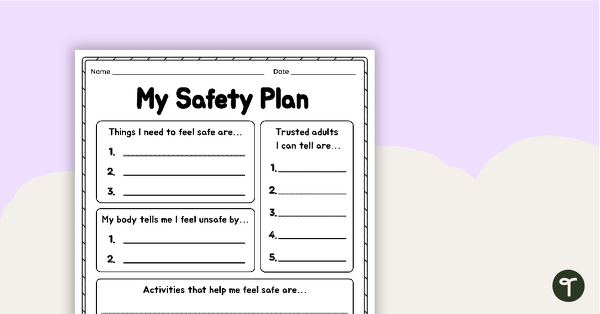
My Safety Plan Worksheet
Create a safety plan to help understand what to do or who to go to when you feel unsafe.
- Plus Plan
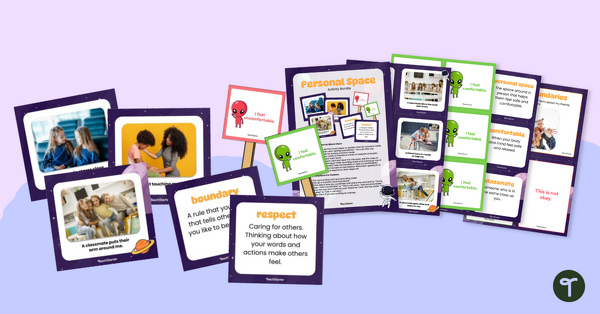
Personal Space and Setting Boundaries Activity Set
Learn about personal space and appropriate boundaries with this activity pack.
- Free Plan
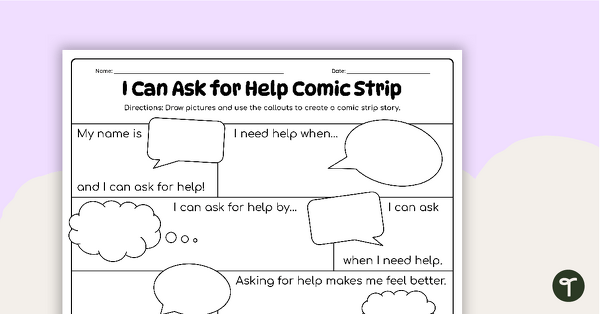
Asking for Help Comic Strip Template
Discuss how and who to go to for help using this comic strip template.
- Plus Plan
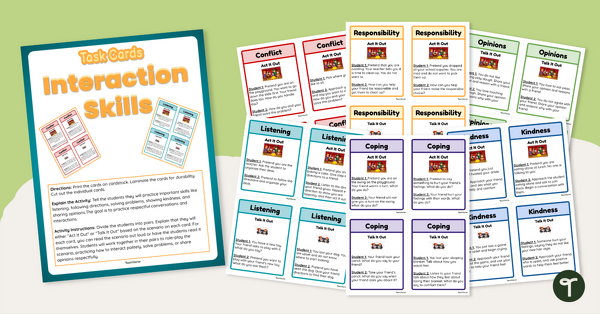
Oral Language Activities
Share these oral language activities with your students to help them practice listening to others, expressing opinions, receiving instructions, and more!
- Free Plan
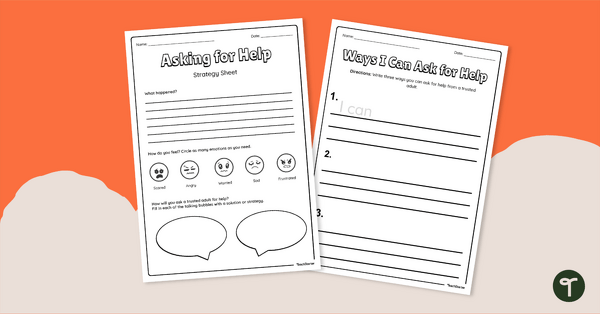
Asking for Help Strategy Sheets
Help students work through a difficult situation and how to ask for help with these asking for help strategy sheets.
- Plus Plan
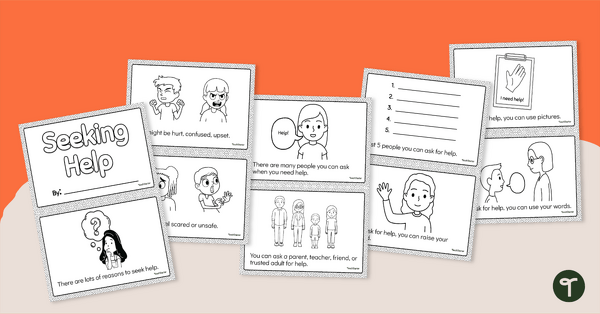
How to Seek Help Mini-Book
Learn all about why, how and when you might seek help with this printable mini-book.
- Plus Plan
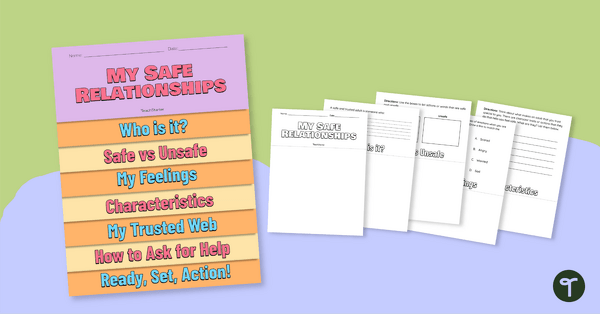
My Safe Relationships Flipbook
Explore what makes a safe relationship and who is in your trusted network with this flipbook.
- Free Plan
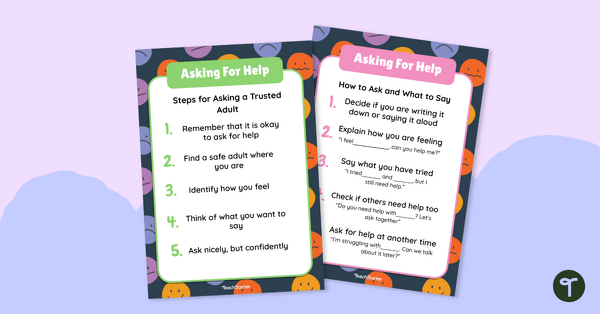
How to Ask for Help Poster Set
Learn how to ask for help with this poster set.
- Plus Plan
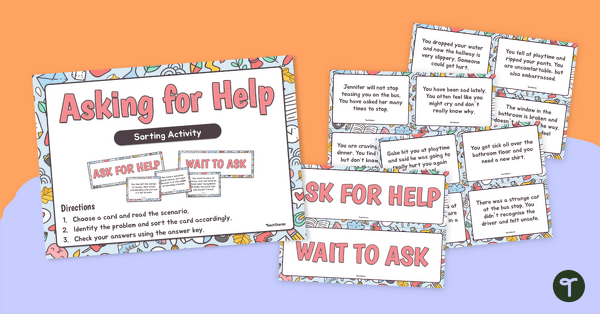
Asking for Help Sorting Activity
Explore whether a question is an 'ask now' question 'wait' question with this sorting activity.
- Plus Plan
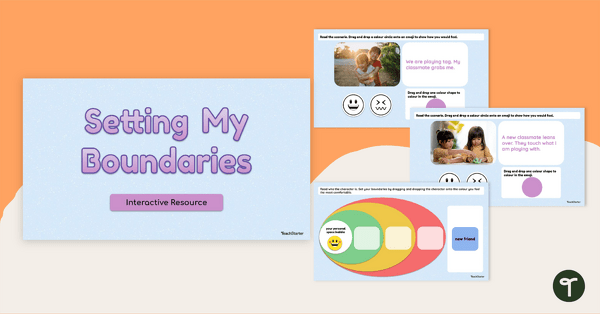
Setting Boundaries - Support Network Interactive Activity
Help students identify their support network of trusted adults with this interactive activity.
- Plus Plan
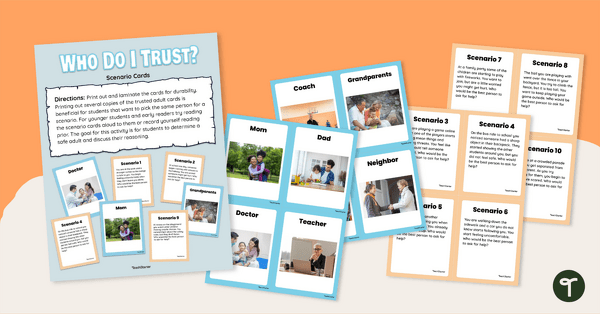
Trusted Adult Scenario Task Cards
Help students understand who is in their trusted adult network and who to go to for help.
- Plus Plan
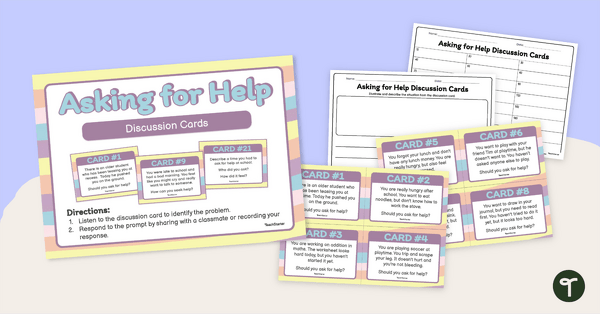
Asking for Help Discussion Cards
Discuss different situations and when students should ask for help.
- Plus Plan
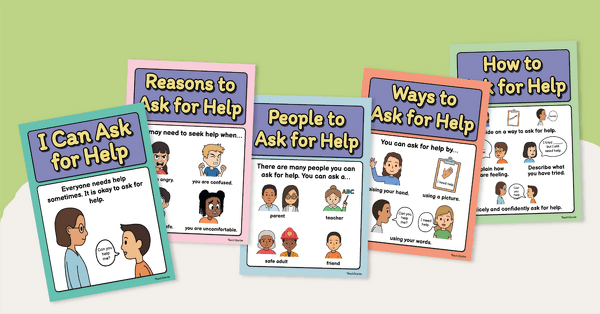
Asking for Help Poster Set
Learn who to go to and how to ask for help with this set of classroom posters.
- Plus Plan
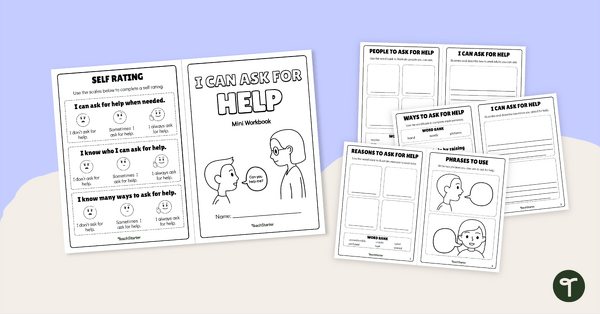
I Can Ask for Help Mini Workbook
Help your students learn how and when to ask for help with this activity mini-book.
- Plus Plan
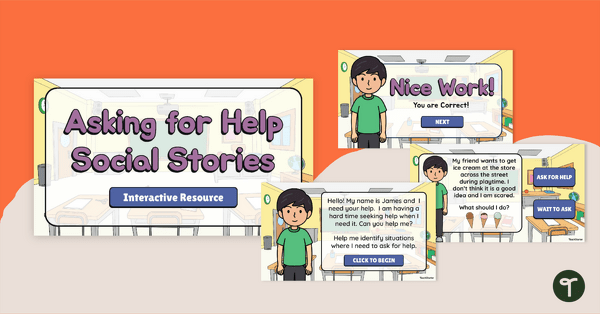
Asking for Help Social Stories - Interactive
Identify whether a situation warrants asking for help immediately or if it can wait with this interactive activity.
- Plus Plan
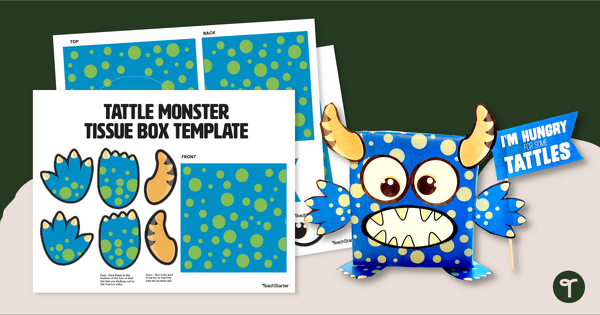
Tattle Monster - Tattle Telling Tissue Box Template
Create a tattle monster out of a tissue box for your classroom using this cute template.
- Plus Plan
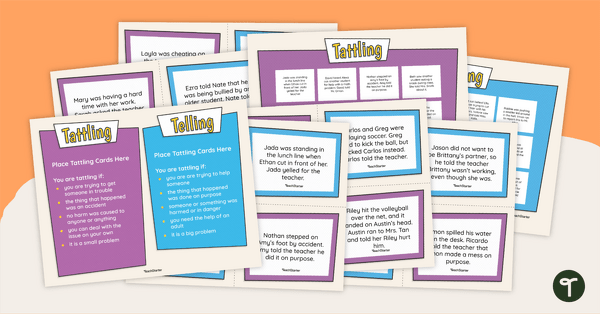
Tattling vs Telling Sorting Activity
Explore the differences between “tattling” and “telling” with this hands-on sorting activity.
- Plus Plan
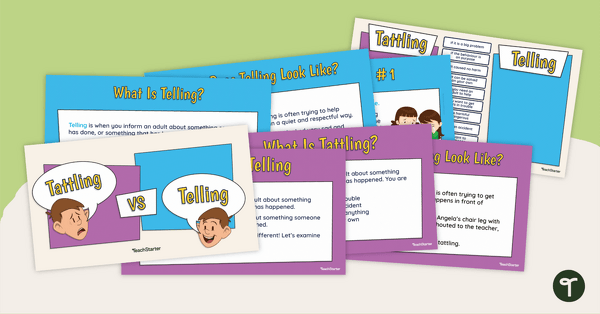
Tattling vs. Telling Teaching Presentation
Teach your students the difference between “tattling” and “telling” with this comprehensive teaching presentation.
- Plus Plan
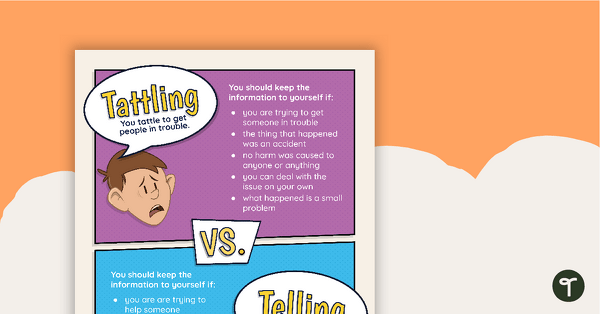
Tattling vs. Telling Poster
Teach your students the difference between “tattling” and “telling” with this classroom display poster.
- Plus Plan
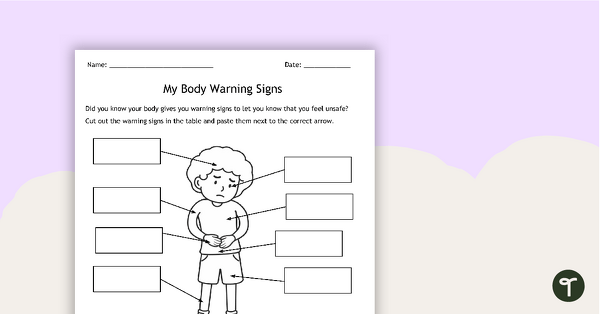
My Body Warning Signs - Worksheet
Help students identify the body signs that indicate they are feeling unsafe with this cut and paste worksheet.
- Plus Plan
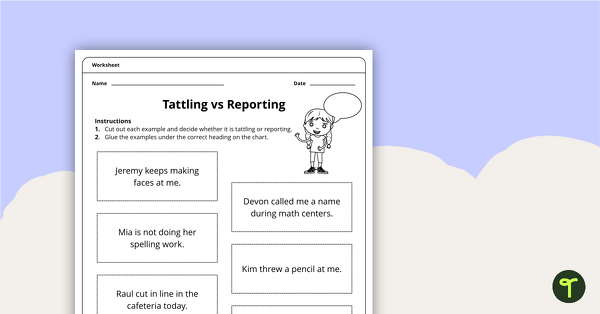
Tattling Vs Reporting Sorting Activity
Reinforce what is considered tattling vs reporting in the classroom with this cut and paste worksheet.
- Plus Plan
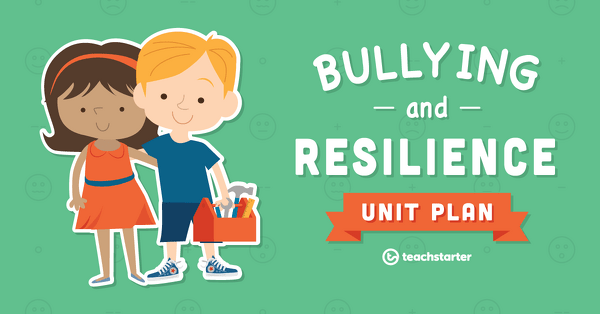
Reporting Bullying
A 60 minute lesson in which students will identify the importance of reporting bullying and who to report to.